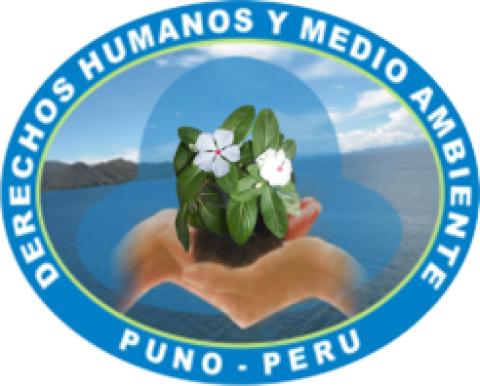
The following is a joint statement regarding the situation facing rural indigenous farmers during the pandemic by Bishop Ciro Quispe Lopez of the Juli, Peru Prelature and the Civil Association of Human Rights and the Environment (DHUMA). Sr. Patricia "Pat" Ryan, MM, is president of DHUMA. DHUMA was awarded the Letelier-Moffitt Human Rights Award in 2018. Representatives from DHUMA visited Washington, D.C. in 2016 to participate in a court hearing at the World Bank.
Puno, Peru, May 2020
"For Food Security"
Since March 16th of this year, the date on which Supreme Decree № 044-2020-PCM went into effect, and even after a more recent set of rules were released, the implementation of the national State of Emergency and obligatory social distancing (quarantine) has proven problematic in the Puno region. Therefore, to our regional, provincial, and district government authorities we present the following:
FIRST: Life in rural areas differs greatly from that in the city, but the authorities who proclaim broad, uniform decisions and policies ignore this variable, failing to acknowledge that urban dynamics are completely different from those of campesinos. They fail to take into account the traditional wisdom of indigenous communities in facing the pandemic, or in ensuring the harvest, thereby protecting life. Policymakers have failed to call upon the coalition of indigenous authorities and communities in confronting this global contagion.
Food security is one of the rights most threatened by the coronavirus. The survival of the majority who make up Peru’s lower economic strata is under daily threat. Authorities offer no answers for poor families in the region and across the country seeking a way to live through the lockdown while meeting their most basic food needs.
SECOND: In this current context, the likelihood of worsening conditions is of grave concern should authorities fail to prioritize urgent activities such as agriculture in the Puno region: farmers find themselves in the middle of harvest season, which is also when cattle are fattened and trout farms prepare their highest catch. These essential activities supply Puno and other regions throughout southern Peru with the high-quality organic foods they need. The current growing season is short and crucial, especially for campesino communities, as seed selection, grazing livestock for market and nurturing young animals as tomorrow’s capital allows them to ensure and guarantee future agricultural activities, the next planting season, and, thus, the survival of the Altiplano population.
The State of Emergency mandates that only one family member may leave the home for food, medicines, and other supplies, but agricultural work requires the participation of entire families, together with transport workers, to harvest their crops, carry products home and to relatives around the country, and ship them to markets throughout the region.
THIRD: We urge authorities to strengthen the Regional COVID-19 Task Force by forming specialized committees, including one for health and food security, empowered to plan, coordinate, and build alliances with grassroots social organizations and representatives of campesino communities, and other organizations representative of indigenous territorial landholdings. Listening to and involving these kinds of local groups will guarantee a more effective response to COVID-19. In addition, it will allow an improved response to emerging instances of mass reverse migrations from urban centers to rural communities of origin. These incidents present difficult challenges for authorities, but also for residents of cities and campesino communities alike.
As Pope Francis says, we are called “…to hear both the cry of the earth and the cry of the poor.” (Laudato Si’ #49).
Signed,
Very Reverend Ciro Quispe Lopez, Bishop of the Juli Prelature
Sr. Patricia Lee Ryan, MM, President, Civil Association of Human Rights & The Environment (DHUMA)
Cristobal Yugra Villanueva, J.D., Executive Director, DHUMA
